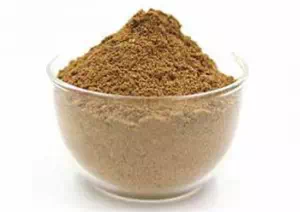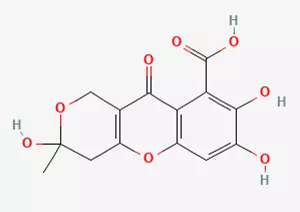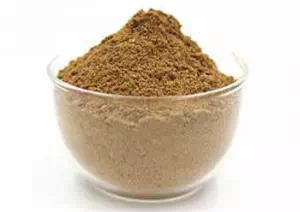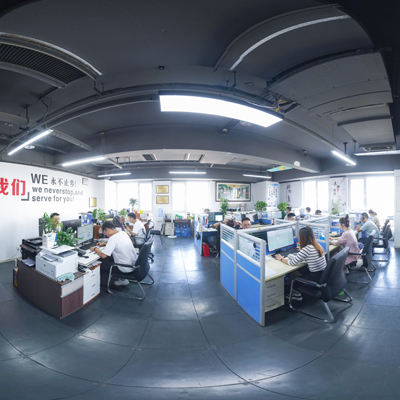What is Fulvic Acid CAS 479-66-3?
In the vast natural world, fulvic acid plays an extremely unique and crucial role. It is the best microstructure presented in all biological decomposition processes. The wonder of this microstructure lies not only in its own uniqueness but also in its close connection with the entire ecosystem.
An in-depth exploration of the structural composition of fulvic acid reveals that it is also ingeniously composed of those possible solar products. The roots of these solar energy products can be traced back to photosynthesis, a magical and fundamental natural process. Under the sunlight, plants convert solar energy into chemical energy through photosynthesis, and then form a series of complex organic substances. These substances, after a series of evolutions and transformations, eventually constitute an important part of the fulvic acid structure. It is worth mentioning that solar energy plays an indispensable role in this process. It is like a magical "craftsman", meticulously crafting the unique qualities and biological activities of fulvic acid, endowing it with distinctive characteristics and functions.
The deposition of fulvic acid is a complex process involving the participation of numerous organisms. Specifically, it is mainly caused by bacteria decomposing a large number of plants. During this process, bacteria act like diligent "cleaners", gradually decomposing and transforming the organic matter in plants, allowing fulvic acid to gradually form and accumulate. Fulvic acid is a raw material that is often encountered in nature, and its source is completely dependent on the decomposition of ancient plants and animals. During the long geological history period, after countless plants and animals died, through the decomposition action of microorganisms, the organic matter in their bodies gradually transformed into fulvic acid. This transformation process is an important link in the material cycle of nature, which enables elements such as carbon and nitrogen on the Earth to constantly transform and cycle among different forms.
However, it is worth noting that fulvic acid does not exist in modern edible plants. This unique property enables it to play a crucial role in the regulation of human physiological functions. In the dietary structure of modern humans, although it is rich in various nutrients, it often lacks natural substances with special physiological functions such as fulvic acid. Fulvic acid, as a product formed during the decomposition process of ancient organisms, the various components and structures it contains can precisely make up for certain deficiencies in modern diets and have a positive and far-reaching impact on the physiological functions of the human body.
For this reason, fulvic acid is undoubtedly one of the best natural acids found in nature. It is like a precious gift bestowed upon humanity by nature, possessing extremely high value and significance. In the ecosystem, fulvic acid has become an important component of the productive humus structure of garden compost soil. It can provide rich nutrients and a suitable living environment for microorganisms in the soil, promote their reproduction and activities, and thereby further improve the structure and fertility of the soil. However, due to the specific conditions and complex process of its formation, the amount of fulvic acid existing in nature is very limited.
From its chemical properties, fulvic acid has acidic residential or commercial properties. This property determines that its formation and existence require specific environmental conditions. Only in those uninterrupted primary woodlands can the strict requirements for the formation of fulvic acid be met. In these primeval woodlands, the abundant plant resources provide a sufficient material basis for the decomposition of microorganisms. Meanwhile, the sufficient supply of oxygen also creates favorable conditions for the activities of microorganisms. In such an environment, many beneficial microorganisms, after a long period of time and complex biochemical reactions in the polluted atmosphere composed of decomposed plant matter and sufficient oxygen, can produce a very small amount of fulvic acid.
Fulvic acid not only holds an important position in the ecosystem, but also plays a non-negligible role in human health. It is regarded as a special electrolyte, and this property enables it to perform a variety of important physiological functions within the human body. For instance, it can effectively supplement over 70 kinds of minerals and trace elements that the human body needs. These minerals and trace elements are essential substances for maintaining normal physiological functions of the human body. They are involved in all aspects of human metabolism, from cell growth and repair to the regulation of various physiological activities, all of which cannot do without their participation.
In addition, fulvic acid can also promote the maintenance of acid-base balance in the human body. In modern life, people's dietary structure and living habits often lead to an imbalance of acids and bases within the human body, and this imbalance may cause various health problems. The appearance of fulvic acid is like a "master of regulation", which can help the human body adjust the acid-base balance and keep the internal environment of the body in a relatively stable state.
Not only that, fulvic acid also has the ability to absorb free radicals and complex heavy metals. Free radicals are harmful substances produced during the metabolic process of the human body. They can cause damage to human cells and tissues, triggering various diseases and aging phenomena. Heavy metals, on the other hand, are a common type of environmental pollutant. Once they enter the human body, they accumulate there, posing a serious threat to human health. Fulvic acid can combine with free radicals and heavy metals, excrete them from the body, and thus play a role in purifying pollutants.
Meanwhile, fulvic acid can also enhance the immunity of the human body. The immune system is an important defense line for the human body against the invasion of external pathogens. Fulvic acid can stimulate the activity of useful cells, enhance the function of the immune system, and make the human body more resistant to disease invasion.
During the course of life's tasks, many natural acids directly participate in biochemical reactions, among which there are no lack of natural acids that play a very important role. These natural acids play their own unique physiological functions within the human body. Some organic acids have antibacterial, anti-inflammatory, antiviral, anti-mutagenic and anti-cancer effects. They are like the "guards" of the human body, capable of resisting the invasion of various pathogens and protecting human health.
Some organic acids can enhance coronary artery blood circulation, prevent the formation of lipid peroxides in brain tissue, soften blood vessels, and promote the absorption of calcium and iron. This is of great significance for maintaining the health of the cardiovascular system and preventing some chronic diseases.
Some organic acids also have the functions of preventing diseases and promoting metabolism. They can help the human body maintain normal physiological functions, promote the digestion and absorption of nutrients, accelerate the excretion of waste, and keep the body's metabolism in a good state.
In conclusion, during an individual's life tasks, the amount of organic acids in the human body directly affects the individual's health. Fulvic acid, as a special natural acid, plays an irreplaceable role in human health. It is like a key that unlocks the door to health, safeguarding our life and well-being.
In addition, fulvic acid is also called fulvic acid, or fulvic acid (mineral resource). It is a very complex black natural substance with a bioactive home and is the best aerobic decomposition project among all active compounds. It is like a huge "molecular treasure trove", with extraordinary residential or commercial properties and the ability to change and transform molecular combinations, composed of almost all natural and non-natural compounds. This complex composition and unique properties enable fulvic acid to occupy a place in nature and also provide us with a broad space for further exploration and utilization of it.
Fulvic Acid CAS 479-66-3 Use
Among numerous complex chemical substances, fulvic acid has attracted extensive attention due to its unique properties and diverse functions, especially in terms of photosensitivity. Fulvic acid, as an important photosensitizer, can generate a series of photoactive substances with unique properties by absorbing ultraviolet light or solar radiation under specific light conditions.
After in-depth research, it was found that when fulvic acid is exposed to sunlight, it undergoes a series of complex and subtle chemical reactions, thereby generating some active substances with relatively short lifespans but extremely strong oxidizing properties. These active substances play a crucial role in the aquatic environment. They can interact with organic pollutants that undergo a very slow direct photodegradation process or cannot effectively absorb ultraviolet rays or sunlight for degradation due to their own structural characteristics. Specifically, these active substances, with their powerful oxidation capacity, can launch oxidation attacks on the aforementioned organic pollutants, just like a well-trained "cleaning team", gradually decomposing those difficult-to-treat pollutants, thereby effectively promoting the degradation of these organic pollutants and making significant contributions to the purification of water environments.
From the perspective of the essential properties of substances, fulvic acid, as a type of humus, is a component derived from nature and has natural photoactivity. When it absorbs light energy, it is like being activated by a complex chemical "engine", which will trigger a series of chain reactions involving free radicals. During this process, fulvic acid plays a sensitizing role in the organic pollutants existing in the water body, making the originally difficult-to-degrade organic pollutants easier to handle. To a certain extent, it significantly promotes the degradation process of these organic pollutants, which is of great significance for maintaining the health and stability of the water ecosystem.
In addition to playing a significant role in the environmental field, fulvic acid is also regarded as having many outstanding benefits in terms of human health. It is regarded as an excellent electrolyte, and this property enables it to play a subtle and crucial physiological regulatory role within the human body. Fulvic acid can precisely supplement over 70 kinds of minerals and trace elements necessary for normal physiological activities in the human body, just like adding bricks and tiles to the "nutrition building" of the human body, ensuring the normal operation of all body functions. At the same time, it also helps promote the acid-base balance within the human body, maintaining the stability and harmony of the internal environment, just like a precise "acid-base regulator".
More importantly, fulvic acid performs well in eliminating free radicals, complex heavy metals and detoxifying pollutants. On the complex "battlefield" of the human body, free radicals, heavy metals and various pollutants are like hidden enemies, constantly threatening human health. Fulvic acid, on the other hand, acts like a brave "guard", capable of identifying and eliminating these harmful substances, thus building a solid protective barrier for the human body. In addition, it can enhance the body's immunity through multiple channels, making the body's defense system more solid and enabling the human body to better resist the invasion of external bacteria and maintain a healthy state. At the same time, fulvic acid can also activate beneficial cells, providing strong support for the body's metabolism and self-repair, just like injecting a continuous "source of vitality" into the cells.
Not only that, fulvic acid also possesses a variety of unique chemical properties, such as chelating, buffering, adsorption and catalytic capabilities. In the complex "chemical factory" of the human body, these capabilities enable fulvic acid to effectively absorb various harmful substances produced during the environmental and digestive metabolic processes, just like an efficient "garbage cleaner", promptly removing these harmful substances and thereby purifying the internal environment of the human body. By maintaining a vigorous metabolism, fulvic acid can promote the growth and repair of cells, keeping all organs and tissues of the body in good condition at all times. Fulvic acid also has a positive preventive and improving effect on various intestinal diseases. It can regulate the balance of intestinal flora and enhance the barrier function of the intestines, just like putting on a layer of "protective clothing" for the intestines. At the same time, fulvic acid can also enhance the immune function of the human body, enabling the body to maintain strong resistance when facing various challenges. In addition, it also has a positive impact on the nervous system, having the functions of calming the nerves and regulating sleep, helping people maintain a good mental state and sleep quality in their busy lives. It is worth mentioning that fulvic acid also contains a variety of active enzymes, such as amylase, protease, cellulase, etc. These enzymes play a crucial role in the digestion and absorption process of the human body. They are like "diligent little assistants", promoting the digestion and absorption of nutrients, providing sufficient energy and nutritional support for the body, and ensuring the normal operation of various body functions.
Service
* Prompt reply and 24 hours online, professional team to provide best price and high quality product.
* Sample testing support.
* Every batch of products will be tested to ensureits quality.
*The packing also can be according the customers` requirment.
*Any inquiries will be replied within 24 hours.
*we provide Commerical Invoice, Packing List, Bill of loading, COA , Health certificate and Origin certificate. If your markets have any special requirements, let us know.








